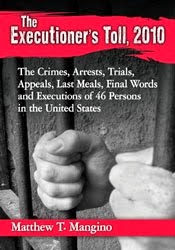About 20 men who had been sent home from federal prison have been locked up again. Not because they violated their parole, but because of a court fight over whether they should be considered “armed career criminals,” reported The Marshall Project.
One of the 20 men, Michael Lemons, bought a hunting rifle
from a neighbor, despite several burglary convictions when he was a teenager.
Federal law says you can’t own a gun if you’ve ever been convicted of a felony.
Authorities found the rifle while searching his home on an old warrant dating
back to his time on probation in his early 20s.
All of Lemons’ burglaries were committed in the course of a
single year more than a decade earlier, when he was homeless. He had not been
in any trouble with the law since. Still, under a 1984
federal law, he was considered an “armed career criminal.”
People convicted of being a “felon in possession of a
firearm” spend about
five years in prison, on average. But the 1984 law requires an
automatic 15-year sentence if someone with a record of three or more violent
felonies gets caught with a gun. In the years since, the Supreme Court
has struggled
to define violent
crime in the context of the Armed
Career Criminal Act.
Critics point to mandatory minimum sentences like this one
as an example of the excesses of the tough-on-crime 80s and 90s, which
President Joe Biden has pledged to eliminate.
Lemons was a decade into his 15-year sentence when he caught
a break. A federal appeals court said that the burglaries from Lemons’ youth
did not count as violent after all, because the law against breaking into a
home in Tennessee didn’t meet the federal definition of a “violent felony.” He
and at least 30 other Tennesseeans could each apply to a judge to be
resentenced without the mandatory 15-year minimum, and, in many cases, go home.
Then, in 2018, the
U.S. Supreme Court reversed course: Those burglaries counted. Though
federal prosecutors could have left the new sentences as is — and did, in some
cases — they began filing court papers to have about two dozen of the men
resentenced and sent back.
“Based upon his significant and repetitive prior felony
conviction record, Lemons has demonstrated time and time again that he cannot
be trusted,” D. Michael Dunavant, the U.S. Attorney whose office prosecuted
Lemons, told The Marshall Project. “If the rule of law is to have any meaning
or legitimacy in our society, it must be enforced consistently, uniformly, and
unapologetically.”
The Supreme Court’s reversal was a “profound and arbitrary
legal flip flop,” wrote lawyers for Tony McClurg in one recently filed legal
brief. McClurg, like Michael Lemons, committed a string of burglaries and
thefts when he was young and homeless — “a 60-day splurge he went on when he
was 21,” his lawyers said at his sentencing hearing. Later, when McClurg was in
his 30s, police discovered guns stashed in his trailer. He was selling
marijuana and he kept the guns for protection, McClurg said.
To read more CLICK HERE








